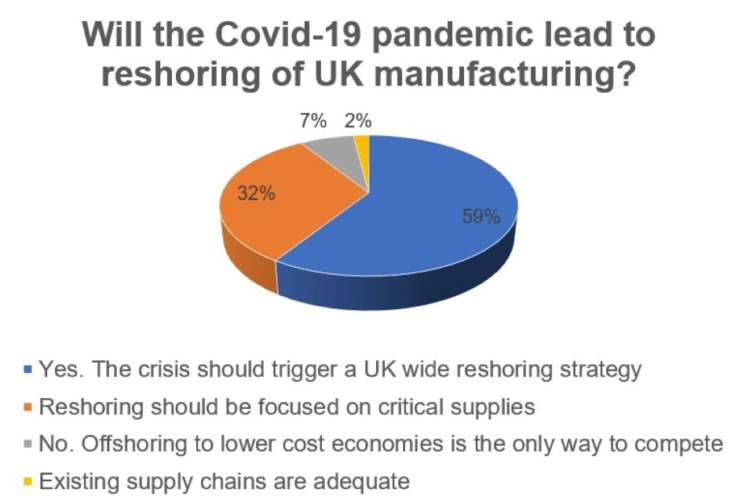
The need to strengthen and simplify UK engineering supply chains by reshoring aspects of production has been a major topic of industry debate for decades: arguably since the very point that manufacturers began outsourcing production to more competitively priced overseas economies.
In recent years – as the value of actually making things has begun to sink in - efforts to beef up UK supply chains and encourage manufacturers to favour domestic production have gathered momentum.
But the Covid-19 pandemic has now turbocharged these arguments by exposing the frailties of many of our supply chains and bringing home in tragic detail just how reliant we have become on the overseas supply of strategically critical items. And there is now growing momentum behind the argument to re-establish UK production of these parts and protect SME manufacturing.
Of course, reshoring is far from straightforward. Shifting manufacturing from overseas and re-establishing the capability to meet existing demands takes time. But the current crisis has illustrated that UK manufacturers - many of whom have rapidly shifted production to critical components that can’t be sourced from existing supply chains - are perhaps more nimble and adaptable than even they thought.
Whatever your views on the practicalities of unpicking decades of outsourcing it seems likely that when the current crisis passes, and we look at the ways in which our economy and manufacturing base can ensure its future resilience, then the arguments for reshoring will be louder than ever before.
Is this is a realistic, or even a sensible aim. Should the Covid-19 pandemic trigger a major reshoring strategy? Is this an unrealistic given the low overseas costs that drove us to offshore in the first place? Perhaps you think that supply chains - in the face of a potentially once in a century health crisis – have proved to be resilient enough, just. Or should we consider a more nuanced approach, where we ensure we have the domestic capability to produce the kind of critical components and equipment that have been in such short supply in recent weeks?
This poll is now closed but we still welcome your comments below the line. Please note that all comments are moderated.





Project to investigate hybrid approach to titanium manufacturing
What is this a hybrid of? Superplastic forming tends to be performed slowly as otherwise the behaviour is the hot creep that typifies hot...